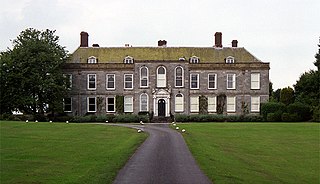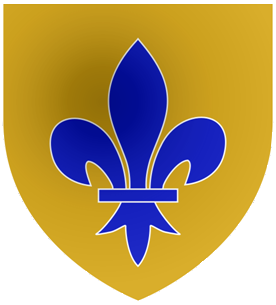Sir Thomas Whitmore, 1st Baronet (28 November 1612 – 1653) was an English politician who sat in the House of Commons of England between 1640 and 1644. He supported the Royalist side in the English Civil War.
Contents

Sir Thomas Whitmore, 1st Baronet (28 November 1612 – 1653) was an English politician who sat in the House of Commons of England between 1640 and 1644. He supported the Royalist side in the English Civil War.

Whitmore was the son of Sir William Whitmore of Apley Hall, Shropshire, and his second wife Dorothy Weld, daughter of John Weld of London. His father was High Sheriff of Shropshire in 1620, [1] and nephew of Sir George Whitmore (d.1654), Lord Mayor of London. [2]
In April 1640, Whitmore was elected Member of Parliament for Bridgnorth for the Short Parliament. [3] He was re-elected in November 1640 in the Long Parliament and held the seat until 1644 when he was disabled for supporting the King. [4] He was created a baronet, of Apley, on 28 June 1641. [1]
In February, 1645, Whitmore's home Apley Hall was taken by the Parliamentarians under Sir John Price. Whitmore and his father, Sir Francis Ottley, Mr. Owen, and about sixty men, were captured. Their estates and moveable property were sequestered by the county's Sequestration Committee and they were held in confinement for a considerable time. Whitmore was fined the enormous sum of £5,000 by the compounders. [5]
Whitmore died at the age of 41. He was succeeded in the baronetcy by his son William.
Whitmore married Elizabeth Acton, daughter of Sir William Acton, 1st Baronet. They had children:
Baron Acton, of Aldenham in the County of Shropshire, is a title in the Peerage of the United Kingdom. It was created on 11 December 1869 for Sir John Dalberg-Acton, 8th Baronet, a prominent historian and Liberal Member of Parliament.
Sir Thomas Littleton, 2nd Baronet was an English politician from the extended Littleton/Lyttelton family who sat in the House of Commons variously between 1640 and 1681.

Sir Edward Acton, 1st Baronet was an English MP for Bridgnorth and High Sheriff of Shropshire, who supported Royalist cause during the English Civil War.
There have been two baronetcies created for persons with the surname Acton, both in the Baronetage of England. One creation is extant.
Sir Francis Lawley, 2nd Baronet was an English courtier and politician who sat in the House of Commons between 1659 and 1679.

There have been two baronetcies created for members of the Whitmore family, one in the Baronetage of England and one in the Baronetage of the United Kingdom. One creation is extinct while the other is extant.
Sir Thomas Trevor, 1st Baronet was a Welsh politician who sat in the House of Commons of England variously between 1640 and 1648.
Sir John Baker, 2nd Baronet was an English politician who sat in the House of Commons of England in 1640. He supported the Royalist side in the English Civil War.

Sir Thomas Peyton, 2nd Baronet, 18 August 1613 to 11 February 1684, was a member of the landed gentry from Knowlton Court in Kent. He supported the Royalists in the War of the Three Kingdoms, and took part in a number of conspiracies to restore Charles II of England during the 1649 to 1660 Commonwealth period.

Sir William Whitmore, 2nd Baronet was an English politician who sat in the House of Commons from 1661 to 1699.

Sir William Portman, 5th Baronet was an English politician who sat in the House of Commons from 1640 to 1644. He supported the Royalist side in the English Civil War.
Sir William Lytton DL JP was an English politician who sat in the House of Commons from 1640 to 1648. He supported the Parliamentary cause in the English Civil War.
Sir John Meux, 1st Baronet was an English politician who sat in the House of Commons from 1640 to 1643. He supported the Royalist cause in the English Civil War.
Sir Richard Lee, 2nd Baronet was an English politician who sat in the House of Commons from 1640 to 1642. He supported the Royalist side in the English Civil War.
Sir Thomas Smith was an English politician who sat in the House of Commons between 1640 and 1644.
Sir George Whitmore was an English merchant who was Lord Mayor of London in 1631. He supported the Royalist cause in the English Civil War.
This is a timeline for the English Civil War in Shropshire.

Sir William Whitmore was an English landowner and politician who sat in the House of Commons at various times between 1621 and 1626.
Sir John Weld (1613–1681), of Chelmarsh and Willey, Shropshire was an English politician who sat in the House of Commons in 1679.
Sir Thomas Whitmore of Apley, near Bridgnorth, Shropshire, was a British Whig politician who sat in the House of Commons from 1734 to 1754.